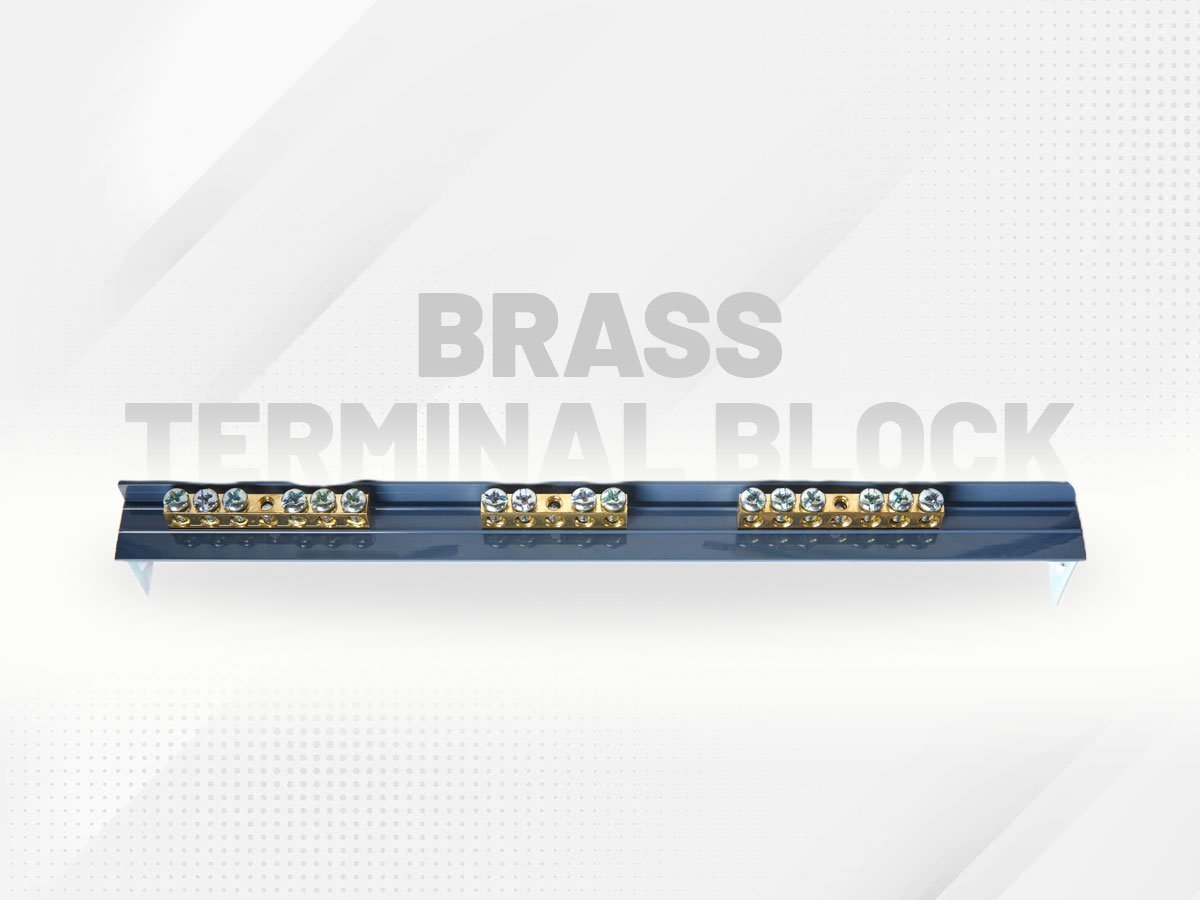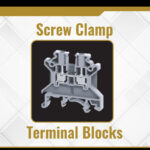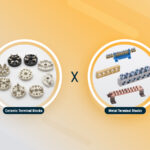Understanding The Role of Brass Terminal Block in Industrial Applications.

There are many different types of metal electrical terminal blocks available for various industrial and commercial applications, making it hard to know which type is the best choice for your projects. In this post, we will take a look at the brass terminal blocks, what it is, what they are used for, and what are some of the alternatives to brass terminal blocks.
What is Brass Terminal Block?
Basically, brass terminal blocks are modular insulated electrical components that can save two or more wires having a clamping device that is surrounded by an insulating body. It has more than two slots where the wire terminals are connected which are not needed to be connected. Using brass screws, wires are firmly fixed in these slots.
Why Choose Brass for Terminal Block?
Terminal blocks can be made from all different types of metals including brass, beryllium copper, Phosphor bronze, lead, and many others. A brass alloy is made of zinc and copper. Brass is the most common and least expensive base alloy material for electrical connectors including terminal blocks. It is the most popular and most used alloy because it has excellent mechanical and electrical properties. Electrical components are mainly made from brass because it doesn’t corrode. It is also a great conductor of electricity.
Brass terminal blocks are vastly used in several types of applications. Let’s see some of the industrial applications of brass terminal blocks,
- Brass terminal blocks are used in electrical, electronics, automobiles, plumbing, construction, automotive, and different industrial sectors.
- It can also be used for medical appliances, marine electrical installation, building construction, heating, ventilation, and air conditioning.
- It is widely used in electrical switches and switchgear to transmit electricity via a brass terminal block.
- It is widely used in electrical fuses, switchboard hardware, and electrical accessories.
- The brass terminal block can be also found in residential and light commercial applications.
- A brass terminal block is used for everything from the core to connecting wires and other conductors.
- There are brass terminal blocks used in electricity meters, earth-moving equipment, and inverters.
- Brass terminal blocks are widely used in circuit protection devices such as MCB, Switchgear, Circuit breakers, RCD, etc.
- The brass terminal blocks are used to connect wires directly to the current bar and the panel boards.
- In individual phases, it is used to create flexible connections between the current bars.
- Brass terminal blocks are used in a variety of neutral and grounding applications.
- It is an electrical connector that allows circuits, usually not just one but many for joining to a different devoid of actually attaching the ends or without a joint.
- This type of electrical connector allows circuits, usually more than one, to connect without attaching ends or joining them.
- Brass terminal blocks are used to connect several wires and additional conductors.
- Utilized especially in OEM and industrial applications.
- Among other applications, it is widely used in electrical appliances, lighting, and building wiring.
- The brass terminal block connectors are suitable for connection to copper earth wires.
- Better quality brass terminal blocks are used in electrical fuse cut-outs, electrical CTPT, electrical transformers, and insulators.
There’s more on the list, but it’s not comprehensive. There are various other applications for brass terminal blocks that are ideal for just about every need you can think of. Additionally, you can find brass terminal blocks in a range of sizes and different types – from smaller sizes that are suitable for residential jobs to larger sizes that are used for industrial applications.
Brass terminal blocks are often the choice of industrial professionals because of their dynamic properties. It is more affordable and durable compared to other terminal blocks.
What are the best alternatives for brass terminal blocks?
While brass terminal blocks are ideal for many applications, there are some alternatives that can be used in some situations. Some of the most common alternatives to brass terminal blocks are copper terminal blocks, aluminium terminal blocks, bronze terminal blocks, MS terminal blocks, zinc-plated terminal blocks, and many others based on industrial requirements.
What is the difference between copper and brass terminal blocks?
Copper Terminal Blocks: If the terminal blocks are made of copper, their colour will be reddish-orange. Copper terminal blocks are widely used in the electrical industry, decorative construction, and hardware accessories due to their quick mining and refining, easy processing, and easy manufacturing.
Brass Terminal Blocks: The colour of brass terminal blocks is yellow because brass is an alloy of copper and zinc. Brass terminal blocks are used in a variety of applications such as ammunition, automobiles, construction, and architectural applications due to their strength, ductility, susceptibility to stress-cracking, conductivity, and strong abrasion-resistant properties.
Brass terminal blocks are perfect for many residential and industrial electric wiring applications or installations. Regardless of any specific industrial needs in the aviation, marine, air force, telecom, or mechanical areas, brass terminal blocks are ideal options.
Teron Metal Components is a leading manufacturer, exporter, supplier, and distributor of brass terminal blocks. We have a highly experienced and dedicated team of experts who are able to provide you with exact metal components or terminal blocks based on your custom specification and requirements. Contact us today, if you are looking for custom brass terminal blocks for your next project



